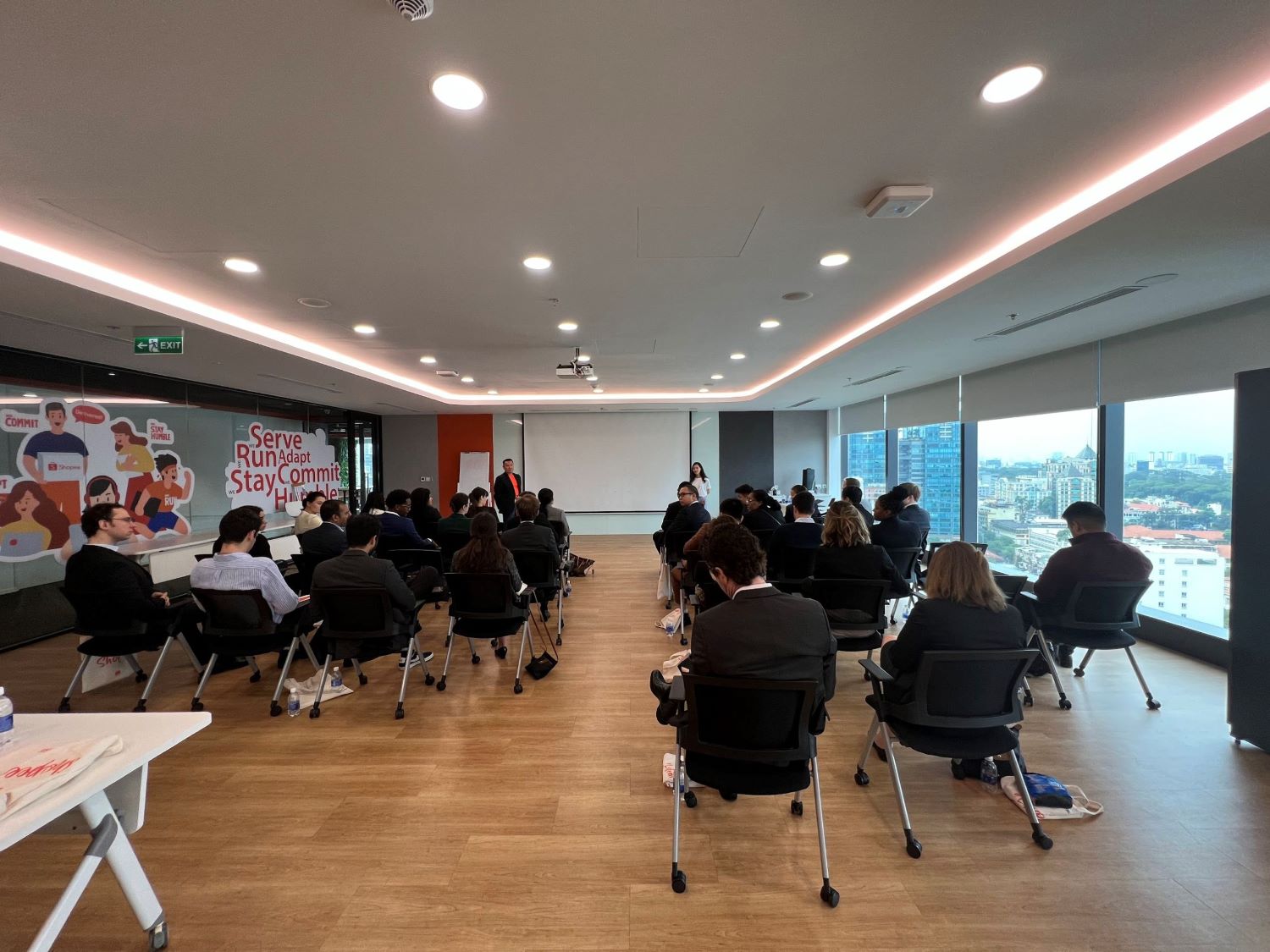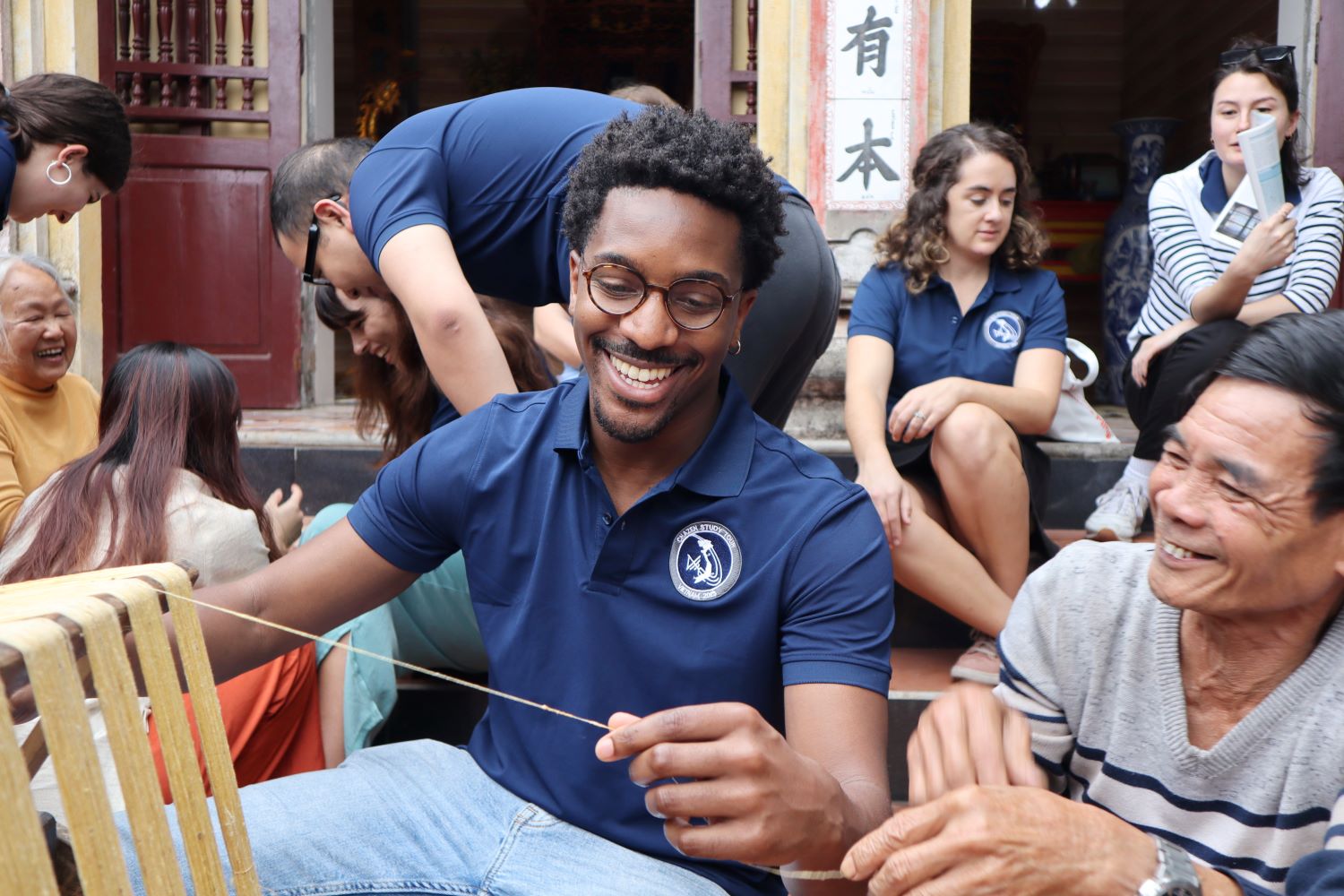Vietnam is an excellent destination for study tours, and students can benefit from exposure to its culture, business environment, and people. For one, Vietnam’s rich culture is steeped in history and tradition. If you’re a visiting student, you can learn about the country's fascinating history, including its struggle for independence during and after the war. They can also explore its traditional handicraft villages, ancient temples, and bustling urban centers.
Another reason Vietnam is ideal for study tours is its vibrant business environment. Of course, its diverse population, with many ethnic groups and cultural traditions, beautiful scenery, and affordable cost of living are plus factors. Students can enjoy a rich cultural experience without breaking the bank. And it won’t come as a surprise for Ivy League universities and their graduate schools to send their students and fellows to Vietnam for study tours.
Columbia Business School study tour in Vietnam
With a rich history of over 100 years, Columbia Business School is dedicated to educating and recognizing business leaders through various MBA, MS, Ph.D., and Executive Education programs. Columbia University’s graduate business school has enrolled over 2,472 students, with 39.4% coming from overseas.
In February of this year, the business school organized the “Vietnam Study Tour," providing students practical observations of Vietnamese culture, people, and business context. The tour included visits to various companies, such as Shopee Xpress and Vietcetera, and also to Nam Cao village. The goal is to provide an understanding of the Vietnamese startup, e-commerce landscape, and traditional handicrafts.
Vietnam’s complex logistics environment - Shopee Xpress

Founded in 2015, Shopee is an online e-commerce platform that operates in several countries across Southeast Asia and has quickly become one of the region's most popular shopping sites.
During his presentation, Huy Chung, a senior manager at Shopee Xpress, provided attendees with valuable insights into the current state of Vietnamese logistics, including the challenges the industry is facing and how it is evolving to overcome them.

In particular, he discussed the rapid development and integration process of logistics in Vietnam, highlighting the significant progress made in recent years. Huy also emphasized the challenges of delivering goods to rural areas, where limited infrastructure and rugged terrain make it difficult to provide fast and reliable shipping services.
Sarah Nguyễn, the marketing director at Shopee Xpress, also shared her perspective on the Vietnamese living standards and environment, focusing on the differences between the cities and the countryside. She discussed how urban areas in Vietnam are rapidly developing and becoming more modernized while rural areas continue to face significant economic and social challenges.
Sarah also highlighted the importance of tailoring logistics solutions to different regions’ specific needs to ensure that all Vietnamese consumers can access fast and reliable shipping services.
Vietnam’s unique business environment - Vietcetera Media
Columbia Business School students had the unique opportunity to hear from Hao Tran, the CEO of Vietcetera. Hao shared his experiences living and starting a business in Vietnam, providing valuable insights into the country's unique business environment.

During the visit to Vietcetera headquarters, students engaged in dialogue with the CEO, asking questions about the challenges of doing business in Vietnam, such as navigating complex administrative procedures, understanding cultural norms, and adapting to different business principles.
Hao provided candid and insightful responses, drawing from his own experiences as well as his knowledge of the broader Vietnamese business landscape.

In addition to discussing the challenges of doing business in Vietnam, Hao shared his journey of establishing Vietcetera, providing students with an inspiring example of entrepreneurship and innovation in a rapidly developing market. He spoke about the opportunities and challenges of building a successful media company in Vietnam, emphasizing the importance of understanding the needs and preferences of Vietnamese consumers.
Vietnam’s cooperative business model and social enterprise - Nam Cao Village
As part of its mission to provide students with practical experiences and knowledge, the tour went beyond the traditional classroom setting and ventured to Nam Cao Village. The village is located in Thong Nong district, Cao Bang province, in northern Vietnam, and is situated around 300 kilometers away from Hanoi.
While in Nam Cao Village, the students had the chance to explore the cooperative business model and social enterprise. They learned about various cooperatives, including agricultural and artisanal cooperatives.

The students also discovered how social enterprises are being used as a tool for sustainable development, providing a way to address social and environmental challenges while generating revenue.
In addition to learning about the cooperative and social enterprise models, the students were able to immerse themselves in the local culture and way of life.

They interacted with the friendly villagers and learned about their daily routines, traditions, and customs. They experienced the simplicity of rural living and gained an appreciation for the resourcefulness and resilience of the people living in Nam Cao Village.
